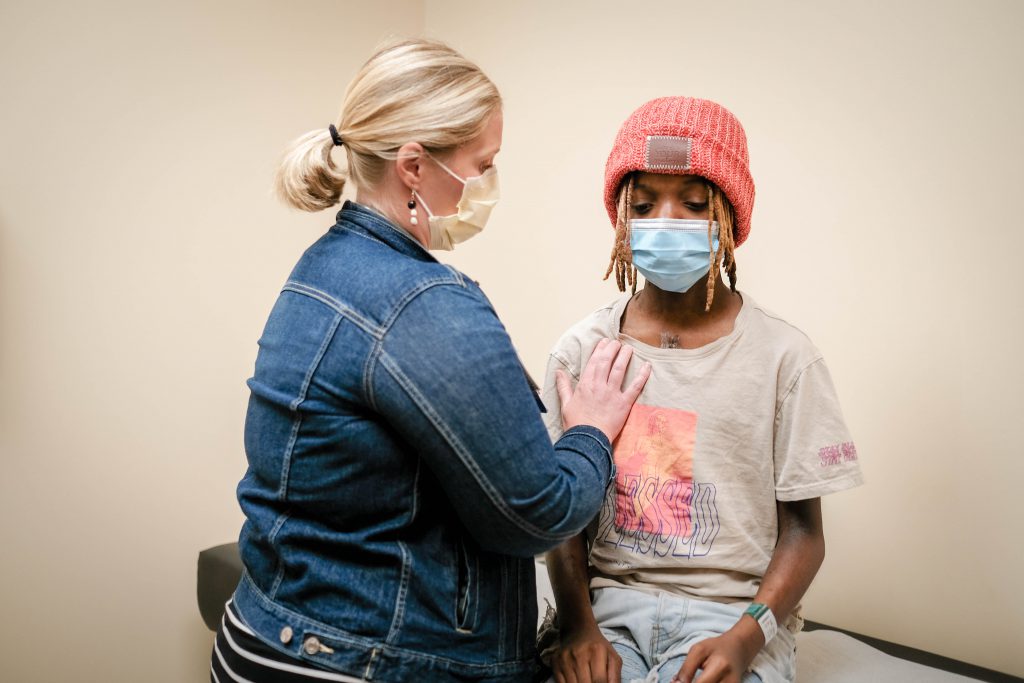Collaborative cardiovascular care turned a life-threatening condition into a second chance for a 17-year-old male who needed a left ventricular assist device as a bridge to heart transplantation.
This patient initially presented to a local emergency department with cold and flu-like symptoms that were suspicious for COVID-19 illness, but the patient also had an extreme level of edema affecting his legs and torso. Initial diagnostic imaging in the ED found troubling levels of fluid around the heart and lungs, which required immediate transfer to Children’s Minnesota for advanced evaluation and treatment. Cardiac imaging led to the uncovering of a rare form of heart disease called restrictive cardiomyopathy. This disease precipitated his rapidly progressive symptoms of heart failure. Because of the etiology of the patient’s cardiomyopathy, the only potential treatment was heart transplantation.

However, because of his advanced heart failure and the effect on his lungs, he required implantation of a left ventricular assist device to become a candidate for transplantation.
Fortunately, the patient required LVAD support for only a few weeks before his lungs improved enough to be considered a transplant candidate. A week after his listing for transplant, a matching donor organ became available.
The cardiac transplantation team at Children’s Minnesota successfully transplanted a new heart into the patient and ten days after surgery, the patient was discharged home with no complications and in good spirits. He will be followed closely by the Children’s Minnesota team and monitored for overall health or signs of graft failure or rejection.
Adam Putschoegl, DO, a cardiologist specializing in heart failure and heart transplantation at Children’s Minnesota and the attending physician in this case explains, “The fact that this patient presented with such a rare and aggressive cardiomyopathy, and that he was able to be stabilized on VAD therapy and transplanted so quickly speaks volumes about the cardiac care we can provide at Children’s Minnesota.”
Cardiovascular Surgeon Robroy MacIver, MD, MPH, who performed the patient’s surgery, says Children’s Minnesota regularly treats children with complex cases and continues to achieve some of the best clinical transplantation outcomes in the nation.
“This patient’s case took multiple planning meetings with multiple groups as the ventricular assist device had not been implanted in this fashion before. It was a privilege to have the family trust our program with their care,” Dr. MacIver says.
To learn more about our care for congenital heart disease or to connect with a Children’s Minnesota expert 24/7, click here.


Doctors and healthcare providers call for 24/7 patient referral, admission and neonatal transport assistance. Learn more.
Children’s Minnesota Clinician Digest
Count on the Clinician Digest for timely news and events from Children’s Minnesota. You’ll get the latest on new clinicians, service highlights, and helpful tips to navigate our health system.